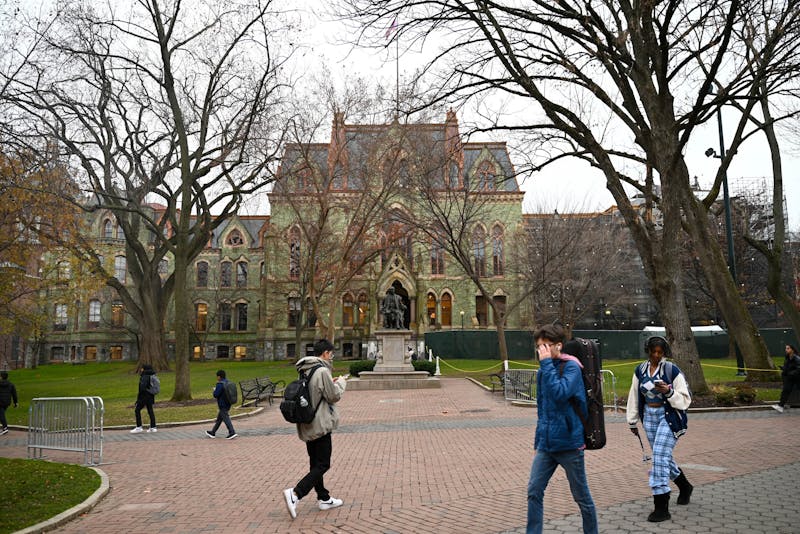
Penn GSE holds their Spring Seminar Series that discusses the importance of social safety net programs for college students.
Credit: Layla NazifPenn’s Graduate School of Education held an event titled “Role of Social Safety Net Programs in College Student Success,” featuring the work of public policy and economics professor Jesse Rothstein from the University of California, Berkeley.
Throughout the semester, GSE plans such events as part of their Spring Seminar Series, which are hosted by Penn’s IES Predoctoral Training Program, and is open to all Penn students, faculty, and staff. The event on Friday, Feb. 21 showcased the work of Rothstein at the UC Berkeley. Additionally, he is the co-director of the California Policy Lab as well as the director of the Center for Studies in Higher Education.
Rothstein shared the results from a series of projects that he has been working on with the California Policy Lab. The California Policy Lab is committed to creating partnerships between academics in the University of California system as well as state and local agencies in California, allowing for an intersection between research expertise and accurate data.
“Our goal was to work with California agencies and do work that would be helpful for them and impactful for them,” Rothstein told The Daily Pennsylvanian. “Agencies have been very focused on getting students more aid, and this is a way to do it; and they didn’t have the ability to do the data legwork that needed to be done.”
During the talk, Rothstein added that there are an increasing number of students that struggle to meet their basic needs, such as food security.
“We have increasing evidence that as we have democratized access to higher education, to some extent, we have more and more students who are in school, who are not coming from families that have the capacity to kind of support them comfortably at the school,” Rothstein said.
While some schools in the United States meet fully demonstrated financial need, several community colleges do not have the resources to provide large amounts of financial support. For instance, according to Rothstein, students that have expressed financial need at California community colleges may not receive substantial financial assistance from the community college, leaving eligible students to receive a Pell Grant, which still may not be enough to cover living expenses.
To understand solutions to these issues, Rothstein’s team focused on studying CalFresh — California’s version of the Supplemental Nutrition Assistance Program — which is funded by the federal government. Benefits that students may receive as part of CalFresh are not included as part of financial aid packages and in need calculations but can be helpful in supplementing what is already available.
In particular, Rothstein’s team wanted to focus on studying how to help more eligible students apply for the program. They worked in collaboration with various different agencies in California to receive accurate data for the number of students that are on CalFresh and their backgrounds.
To increase student participation in CalFresh, Rothstein’s team conducted two experiments. In the first experiment, the Student Aid Commission sent emails to students, but some students received the email earlier than others. They found that students were 1 to 2.5% more likely to apply for and receive CalFresh benefits than students who received the email later.
In the second experiment, the Department of Social Services sent out four different emails to students, with some receiving a follow-up postcard. The emails increased applications by 2.7%, while the postcards doubled this effect, showing the impact of additional outreach via follow-up messages.
“It does have a positive effect,” Rothstein said. “And then, we’re working to develop more impactful outreach. Numbers and emails are great, but we think it’s important to go beyond just nudges.”
A few months ago, Penn announced new financial aid initiatives that were aimed to improve support for middle-income families and would go into effect at the start of the 2025-26 academic year.
Some of the changes included the fact that Penn will no longer consider the value of the primary family home among assets that determine financial aid eligibility and will increase the income threshold for families eligible to receive full-tuition scholarships from $140,000 to $200,000. Ultimately, it is projected that the changes will increase financial aid packages and guarantee full-tuition scholarships to a greater number of students.
The Daily Pennsylvanian is an independent, student-run newspaper. Please consider making a donation to support the coverage that shapes the University. Your generosity ensures a future of strong journalism at Penn.
Donate












